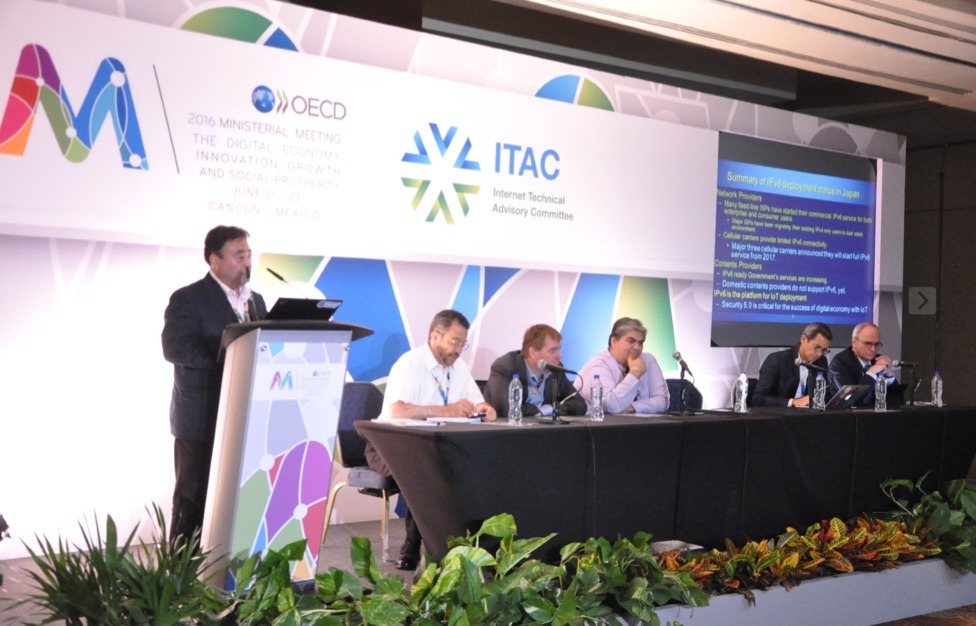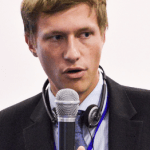What are some of the key opportunities and challenges for the future of the Internet? What are the technical building blocks to ensure that the Internet remains an open, trusted space for economic and social development? How do we work together to achieve our common objectives for an inclusive, sustainable Digital economy?
These questions were at the core of the Forum organized by the Internet Technical Advisory Committee to the OECD (ITAC) on 21 June, in the context of the OECD Ministerial on the Digital Economy (Cancun, Mexico).
The session identified a set of key foundations for the future of the Digital economy:
- IPv6 deployment is growing, but creative efforts are needed: There have been major developments in IPv6 deployment in recent years, but the growth is not fast enough: the (near) future of ubiquitous connected devices and smart cities can only scale in a system where IPv6 becomes the norm. Future growth and value in the digital space will come from global and interoperable large scale ecosystems.
- The Internet of Things needs to be based on open, interoperable standards: As digitalization touches everything from health, automobile and financial industries, it is essential that trust and security become core features of the IoT. Open and transparent standards are necessary to create efficiencies, reduce silos and increase security through open technical development. Failing that could risk leading to a fragmented ecosystem.
- Security of networks depends on collaboration: Security in an interconnected world requires a shift from traditional security thinking. On the Open Internet, security is not the sole domain of IT professional and engineers anymore: the effects of security breaches can have wide ranging impacts on economic and social development, this requiring the contribution and collaboration of a wide range of actors across sectors. Security is not “someone’s else” problem: addressing one’s own security issues can have beneficial effects for the whole system (similar to how washing your own hands can prevent spreading of diseases).
What transpired across all these sessions is the need for all stakeholders to address these issues together in order to achieve a trusted, sustainable and inclusive digital economy. This is the spirit that the OECD Secretary-General, Angel Gurria, highlighted at multiple occasions during this day, emphasising the significant contributions of the stakeholder communities in informing the work of the OECD.
VIDEO: The sessions were recorded and are available for viewing on YouTube. Please note that there were some issues with the audio at the very beginning that were sorted out after a short time. Also, the live stream continued to be active over the 1.5 hour lunch and so you will need to skip over that section of the video.

